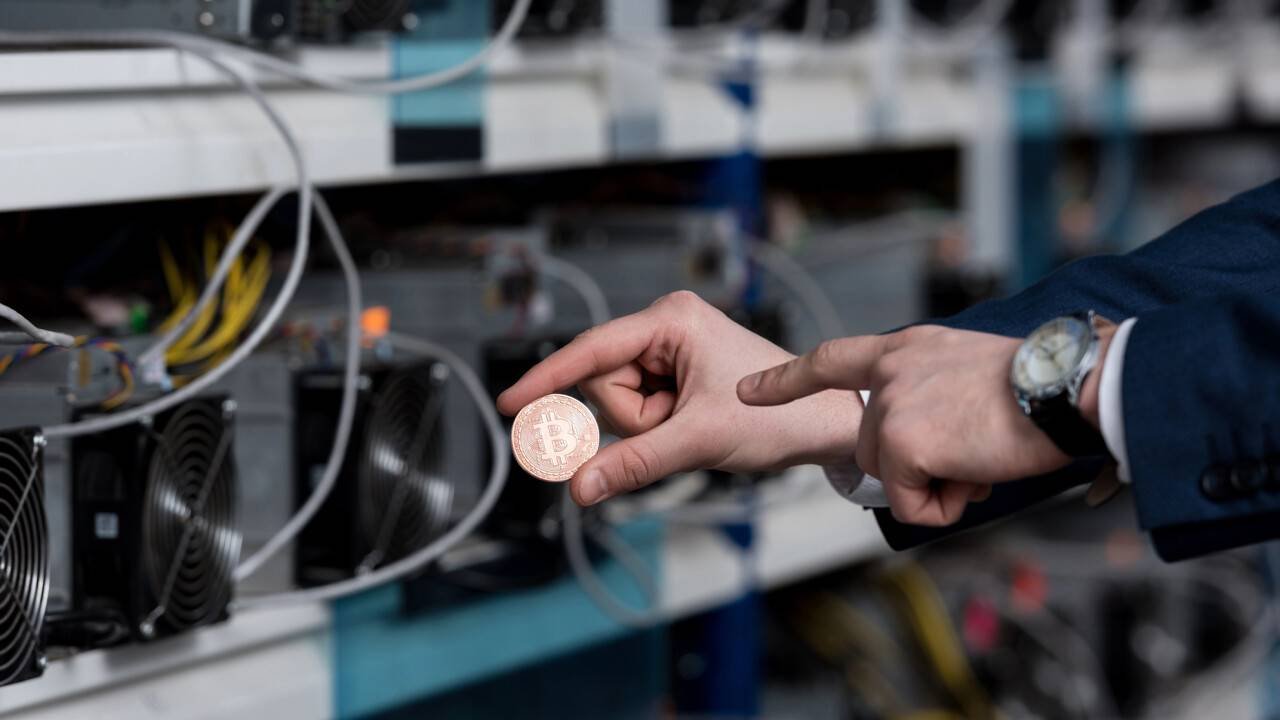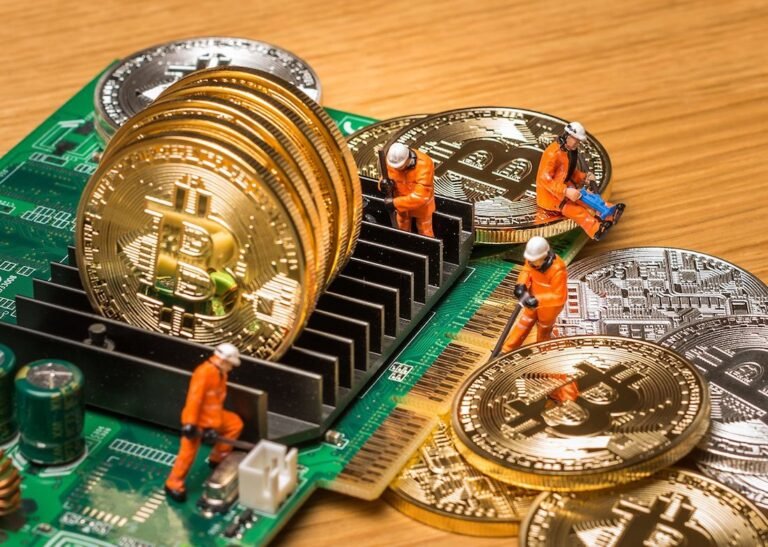The cryptocurrency mining industry has evolved into a multi-billion dollar ecosystem, with Bitcoin mining equipment financing becoming a critical component for miners seeking to expand their operations. Whether you’re a small-scale enthusiast looking to purchase your first ASIC miner or an enterprise-level operation planning a massive mining farm, securing proper financing can make the difference between success and missed opportunities in this competitive landscape.
Bitcoin mining equipment financing offers miners the capital needed to purchase expensive hardware without depleting their cash reserves entirely. With individual ASIC miners costing thousands of dollars and complete mining setups reaching hundreds of thousands, traditional purchasing methods often fall short. Professional miners understand that leveraging financing options allows them to scale operations more effectively while maintaining liquidity for operational expenses and market volatility management.
Understanding Bitcoin Mining Equipment Financing Options
Traditional Bank Loans for Mining Operations
Traditional financial institutions have gradually warmed up to cryptocurrency-related businesses, though Bitcoin mining equipment financing through banks remains challenging. Most conventional lenders still view crypto mining as high-risk due to price volatility and regulatory uncertainties. However, established mining companies with strong credit histories and substantial collateral may qualify for commercial equipment loans.
Banks typically require extensive documentation including business plans, financial statements, and detailed equipment specifications. The approval process can take several weeks or months, making it less suitable for time-sensitive purchases when new mining hardware becomes available.
Equipment Financing Companies Specializing in Crypto Mining
Specialized equipment financing companies have emerged to fill the gap left by traditional lenders. These companies understand the unique challenges and opportunities in Bitcoin mining, offering tailored financing solutions for ASIC miners, cooling systems, power infrastructure, and complete mining facility setups.
These lenders often provide faster approval processes and more flexible terms compared to traditional banks. They understand the depreciation patterns of mining equipment and structure loan terms accordingly, typically offering 12 to 60-month repayment periods with competitive interest rates.
Cryptocurrency-Native Lending Platforms
The rise of decentralized finance (DeFi) and crypto-native lending platforms has created new opportunities for Bitcoin mining equipment financing. These platforms allow miners to use their existing cryptocurrency holdings as collateral for equipment loans, often providing same-day funding.
Popular platforms like BlockFi, Celsius (before its closure), and newer entrants offer collateralized lending services. Miners can leverage their Bitcoin or other cryptocurrency holdings to secure funding for new equipment while maintaining their crypto exposure.
Bitcoin Mining Equipment Financing Requirements and Eligibility
Credit Score and Financial History Considerations
Lenders evaluating Bitcoin mining equipment financing applications typically require minimum credit scores ranging from 650 to 720, depending on the loan amount and terms. Personal credit scores matter significantly for smaller operations, while larger mining companies may rely more on business credit profiles. Financial history documentation includes tax returns, bank statements, and proof of mining revenue. Established miners with consistent profitability records have significantly better approval odds and can negotiate more favorable terms.
Collateral and Down Payment Expectations
Most Bitcoin mining equipment financing requires some form of collateral or down payment. Equipment itself often serves as primary collateral, but lenders may require additional security depending on the loan-to-value ratio. Down payment requirements typically range from 10% to 30% of the equipment value. Some lenders offer zero-down financing for highly qualified borrowers or when purchasing from preferred equipment dealers.
Business Documentation and Mining Experience
Lenders prefer borrowers with documented mining experience and clear business operations. Required documentation often includes:
- Business registration and licensing
- Mining facility documentation
- Electricity contracts and utility agreements
- Equipment maintenance records
- Mining pool participation history
- Revenue and expense tracking
Equipment Types Covered by Mining Financing Programs
ASIC Miners and Specialized Hardware
The most common form of Bitcoin mining equipment financing covers Application-Specific Integrated Circuit (ASIC) miners. These specialized devices are designed exclusively for cryptocurrency mining and represent the largest expense for most mining operations.
Popular ASIC models like Antminer S19 series, WhatsMiner M30S+, and AvalonMiner units are regularly financed through specialized programs. Lenders understand the performance specifications and expected lifespan of these devices, allowing for appropriate loan structuring.
Power Infrastructure and Cooling Systems
Successful mining operations require substantial power infrastructure and cooling systems. Bitcoin mining equipment financing often extends beyond the miners themselves to include:
- Power distribution units (PDUs)
- Transformers and electrical infrastructure
- Industrial cooling systems
- Ventilation equipment
- Backup power solutions
These ancillary components are crucial for mining profitability and are typically included in comprehensive financing packages.
Complete Mining Facility Development
Large-scale mining operations may require financing for entire facility development projects. This includes building construction or renovation, electrical system installation, and infrastructure development. Some specialized lenders offer project financing for complete mining facilities, working with established contractors and equipment suppliers to provide turnkey solutions.
Interest Rates and Terms for Crypto Mining Loans

Current Market Rates and Trends
Bitcoin mining equipment financing interest rates vary significantly based on borrower qualifications, loan terms, and market conditions. Current rates typically range from 8% to 25% annually, with prime borrowers accessing the lower end of this spectrum. Rates for crypto mining loans generally exceed traditional equipment financing due to perceived industry risks. However, specialized lenders familiar with mining operations often offer more competitive rates than general commercial lenders.
Loan Term Options and Structures
Most Bitcoin mining equipment financing offers terms between 12 and 60 months, with 24-36 month terms being most common. Shorter terms typically carry lower interest rates but higher monthly payments, while longer terms provide better cash flow management at higher total costs. Some lenders offer seasonal payment structures that align with mining difficulty adjustments and market cycles, providing flexibility during periods of reduced profitability.
Application Process and Timeline
Documentation Requirements and Preparation
Successful Bitcoin mining equipment financing applications require thorough preparation. Essential documentation includes:
- Personal and business financial statements
- Credit reports and histories
- Equipment specifications and quotes
- Mining facility documentation
- Electrical capacity verification
- Business plan and profitability projections
Preparing comprehensive documentation upfront significantly accelerates the approval process and improves approval odds.
Approval Timeline and Funding Speed
Specialized crypto mining lenders typically provide faster processing than traditional banks. Application to funding timelines often range from 3 to 21 days, depending on loan complexity and borrower qualifications. Some lenders offer expedited processing for time-sensitive equipment purchases, particularly when new hardware models are released or during favorable market conditions.
Maximizing Your Bitcoin Mining Equipment Financing Success

Improving Approval Odds and Terms
Several strategies can improve your chances of securing favorable Bitcoin mining equipment financing:
Build Strong Credit Profiles: Maintain excellent personal and business credit scores through timely payments and low credit utilization ratios.
Document Mining Experience: Maintain detailed records of mining operations, including revenue tracking, equipment performance data, and operational metrics.
Establish Banking Relationships: Develop relationships with cryptocurrency-friendly banks and credit unions to improve financing options.
Professional Business Structure: Operate as a legitimate business entity with proper licensing, insurance, and professional accounting practices.
Working with Equipment Dealers and Financing Partners
Many ASIC manufacturers and distributors maintain relationships with financing companies to facilitate customer purchases. These partnerships often provide streamlined application processes and potentially better terms. Popular equipment dealers like Compass Mining, Blockware Solutions, and others offer integrated financing options that can simplify the purchasing process while providing competitive terms.
Risk Management and Financial Planning
Managing Market Volatility Impact
Bitcoin price volatility significantly impacts mining profitability and loan repayment ability. Successful miners implement risk management strategies including:
- Diversified revenue streams beyond Bitcoin mining
- Hedging strategies using futures or options
- Conservative leverage ratios
- Emergency cash reserves for difficult periods
Equipment Obsolescence and Technology Risks
Mining hardware becomes obsolete relatively quickly as new, more efficient models are released. Bitcoin mining equipment financing should account for this depreciation through:
- Shorter loan terms that align with equipment useful life
- Regular equipment upgrades and trade-in programs
- Technology upgrade clauses in financing agreements
Alternative Financing Strategies
Equipment Leasing and Rental Options
Some miners prefer leasing arrangements over traditional financing, particularly for rapidly evolving technology. Equipment leasing provides:
- Lower upfront costs
- Built-in upgrade paths
- Maintenance and support services
- Tax advantages in some jurisdictions
Mining Pool Financing and Cooperative Models
Innovative financing models include mining pool-sponsored equipment programs and cooperative purchasing arrangements. These models allow smaller miners to access institutional-level financing terms through group participation.
Cryptocurrency Collateralized Loans
Using existing cryptocurrency holdings as collateral for equipment purchases allows miners to maintain their crypto exposure while accessing needed capital. This strategy works particularly well during bull markets when crypto values are rising.
Regulatory Considerations and Compliance
Legal Framework and Licensing Requirements
Bitcoin mining equipment financing operates within evolving regulatory frameworks. Miners must ensure compliance with:
- Local business licensing requirements
- Financial services regulations
- Tax obligations and reporting
- Environmental regulations
- Zoning and permit requirements
Tax Implications of Equipment Financing
Equipment financing carries specific tax implications including depreciation schedules, interest deductions, and potential Section 179 benefits. Consulting with cryptocurrency-experienced tax professionals ensures optimal tax treatment of financed equipment.
Also Read: Professional Bitcoin Mining Equipment Complete Buyer’s Guide 2025
Industry Trends and Future Outlook
Emerging Financing Models and Technologies
The Bitcoin mining equipment financing landscape continues evolving with new models including:
- Blockchain-based lending protocols
- Tokenized equipment ownership
- Revenue-sharing agreements
- ESG-focused financing for renewable energy mining
Market Consolidation and Institutional Participation
Increasing institutional participation in Bitcoin mining is driving demand for sophisticated financing solutions. Large-scale operations require more complex financing structures, pushing innovation in the lending space.
Conclusion
Bitcoin mining equipment financing has become an essential tool for miners seeking to compete in the increasingly sophisticated cryptocurrency mining landscape. Success requires understanding the various financing options available, meeting lender requirements, and implementing sound risk management practices. Whether you’re purchasing your first ASIC miner or expanding a commercial mining operation, proper financing can accelerate your growth while preserving capital for operational needs.
Take action today by researching specialized Bitcoin mining equipment financing providers, preparing your documentation, and developing a comprehensive business plan. The competitive mining landscape rewards those who can quickly adapt to new opportunities, and proper financing provides the flexibility needed to succeed. For miners ready to explore financing options, start by comparing rates and terms from multiple specialized lenders, ensuring you secure the most favorable terms for your Bitcoin mining equipment financing needs.

